
There are times that we might not find the exact words to explain or express the feeling when travelling. It always happened more often that we run out of words to describe our thoughts or emotions & feelings when we are travelling or on an adventure. Maybe adding the below words to your lexicon will help. Learning new words & Languages is really fun especially if it relates to your hobby or interest .
So here is the list of 25 Words Every Traveler Should Know and it might be required some efforts to pounce it but the adventurer in you who love to take challenges will surely relate to their meanings.
1. WANDERLUST
Let’s start with the most popular one. A wanderlust mean a strong, innate, impulse or desire to travel the world.

2.COSMOPOLITAN
Cosmopolican be best defined as “At home all over the world,” and as a noun, “a citizen of the world
3.VAGARY
From the Latin vagari, meaning “to wander,” this 16th-century word originally meant a wandering journey. Nowadays, “vagaries” refer to unpredictable or erratic situations, but that doesn’t mean the old sense of the word can’t be invoked from time to time.
4. SELCOUTH
An Old English word that refers to something that’s both strange and marvelous. It’s a great way to sum up those seemingly indescribable moments spent in an unfamiliar land.
5. FERNWEH
Who hasn’t felt a strong desire to be somewhere—anywhere—other than where you currently are? That’s fernweh, or “farsickness,” and this German word has been described as a cousin of wanderlust, another German loan word.
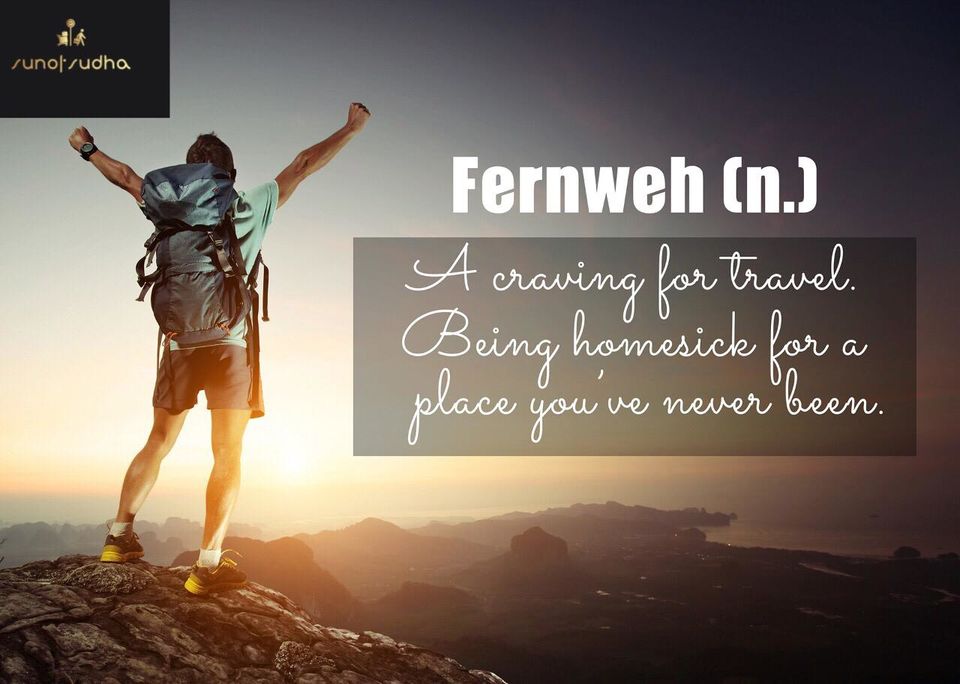
6. DÉRIVE
Another gift from the French, this word literally translates to “drift,” but thanks to some mid-20th century French philosophers, it can also refer to a spontaneous trip, completely free of plans, in which you let your surroundings guide you.

7. PEREGRINATE
To peregrinate is to travel from place to place, especially on foot.
8. PERAMBULATE
Similar to peregrinate, this word essentially means to travel over or through an area by foot. So instead of saying that you’ll be walking around London, you can say you’ll be perambulating the city’s streets—much more sophisticated.Syn- Wayfarer
9. NUMINOUS
This English word could appropriately be used to describe the Grand Canyon or the Northern Lights. Something numinous is awe-inspiring and mysterious. It’s difficult to understand from a rational perspective, which gives it a spiritual or unearthly quality.

10. PERIPATETIC
The young and the restless will want to incorporate this word into their lexicon. The adjective refers to those who are constantly moving from place to place—in other words, a nomadic existence. It stems from the Greek word peripatein (“to walk up and down”).
11. WALDEINSAMKEIT
You’re alone in a forest. It’s peaceful. The sun is filtering through the trees and there’s a light breeze. That’s waldeinsamkeit. (Literally “forest solitude.” And yes, Germans have all the best travel words.)
12. SOLIVAGANT
In those moments when you just want to run away from your responsibilities, you may consider becoming a solivagant: a solo wanderer.
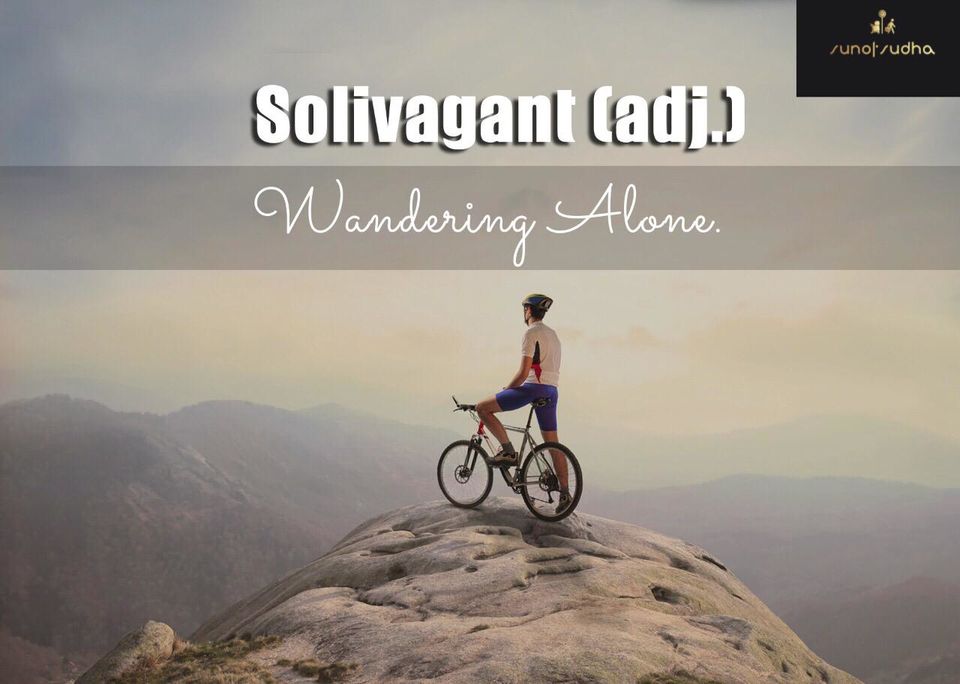
13. RESFEBER
You just booked your flight. Your heart starts racing. You’re a little nervous about your journey, but mostly you just can’t wait to get going. The anticipation, anxiety, and excitement you get before a big trip is all rolled into one word—resfeber—and you can thank the Swedes for it.
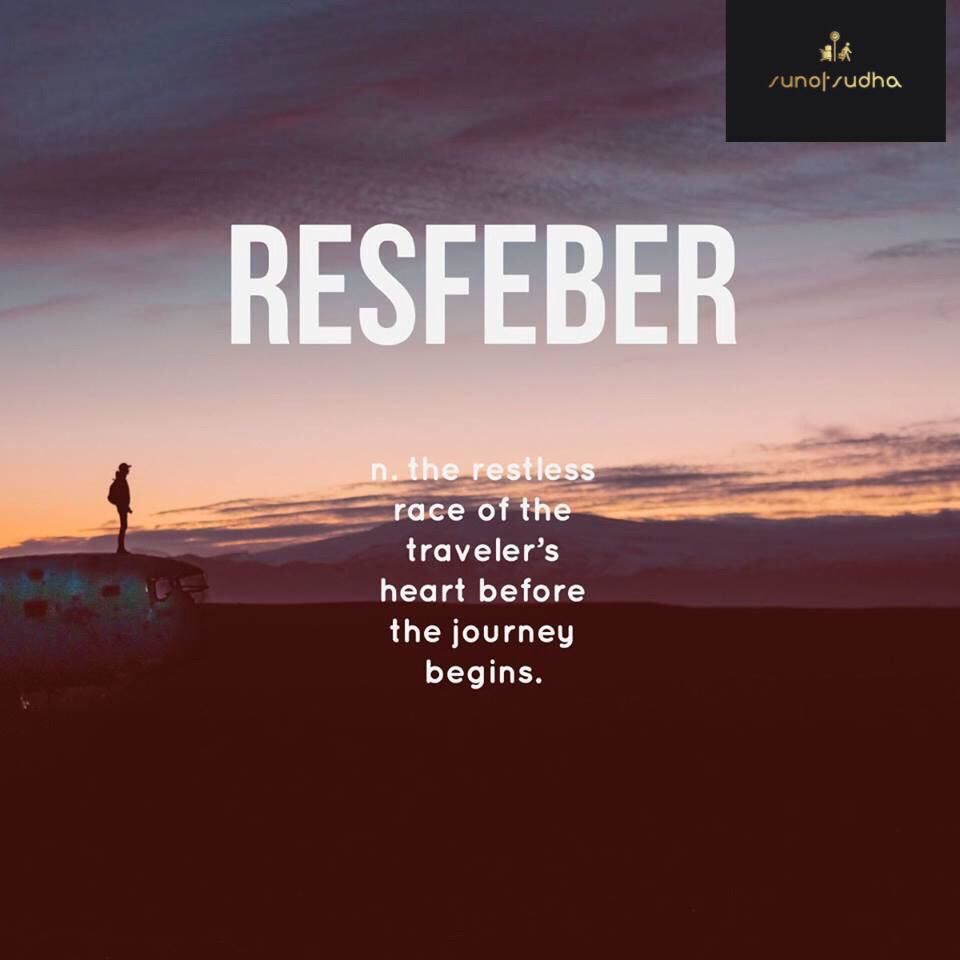
14. GADABOUT
This could be construed as the traditional English equivalent of flâneur, meaning “to wander without a specific aim or purpose,” a gadabout is one who frequently travels from place to place for the sheer fun of it. In other words: a modern-day backpacker.
15. HIRAETH
Sometimes, no matter how amazing your vacation may be, you just want to come home to your bed and cats. This Welsh word sums up the deep yearning for home that can strike without warning. As Gillian Thomas put it in an interview with the BBC, “Home sickness is too weak. You feel hiraeth, which is a longing of the soul to come home to be safe.”
16. COMMUOVERE
Have you ever seen something so beautiful it made you cry? That’s commuovere in action. The Italian word describes the feeling of being moved, touched, or stirred by something you witness or experience.
17. SMULTRONSTÄLLE
This Swedish word translates to something along the lines of “place of wild strawberries,” but its metaphorical meaning is something along the lines of a “happy place.” Whether it’s a hidden overlook of the city or your favorite vacation spot that hasn’t been “discovered” yet, smultronställe refers to those semi-secret places you return to time and time again because they’re special and personal to you.
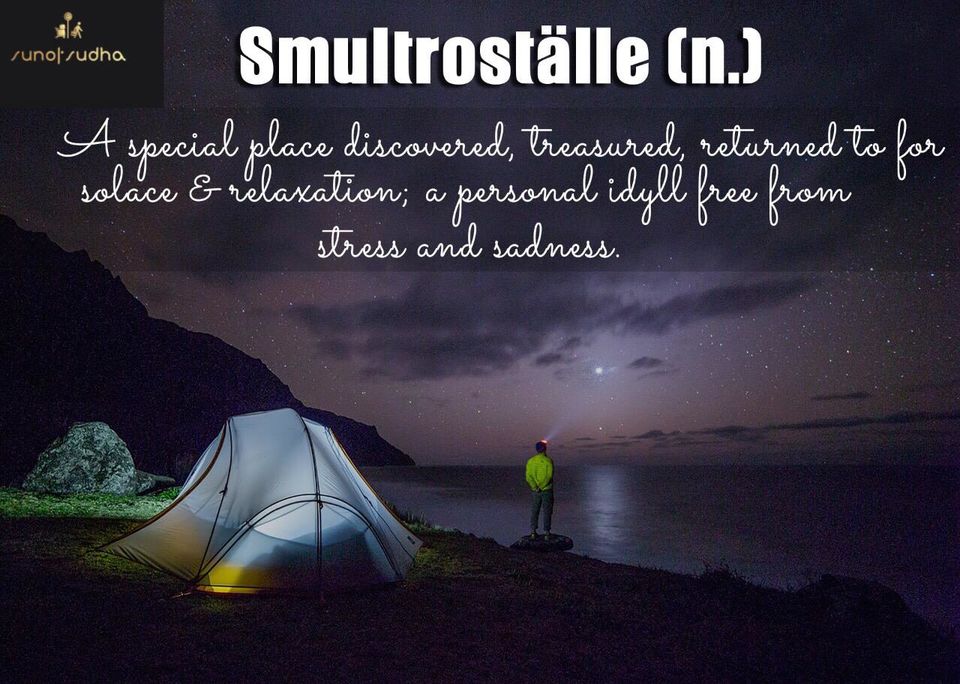
18. SONDER
The realization that each random passer-by is living a life as vivid and complex as your own.

19. NEMOPHILIST
A haunter of the woods; one who loves the forest and its beauty and solitude.
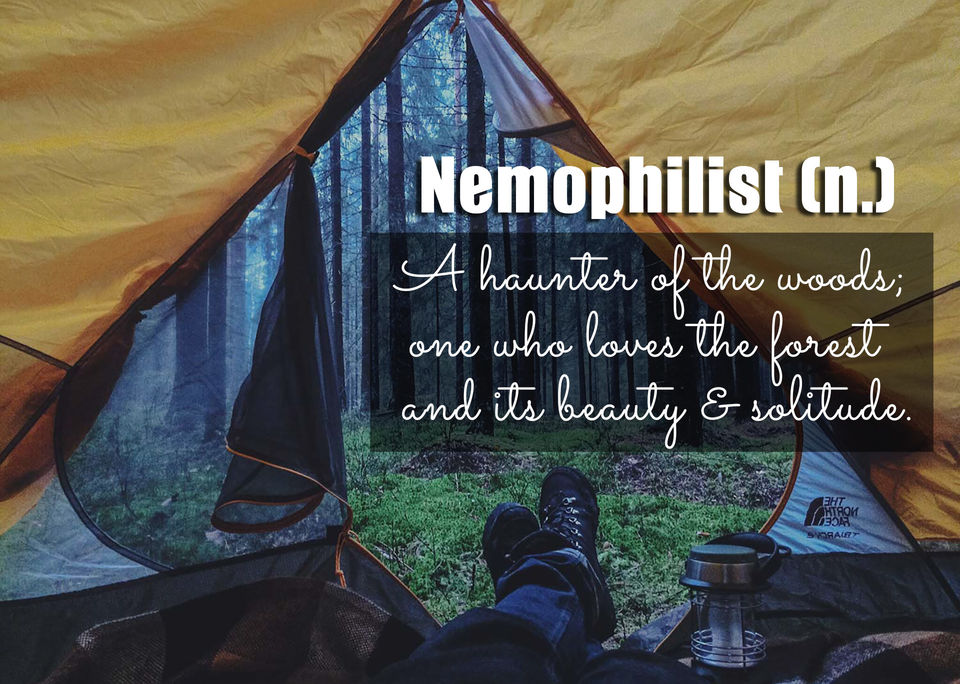
20. LEHITKALEV
Backpackers and budget travelers, this one is for you: The Hebrew word lehitkalev translates to “dog it” and means to deal with uncomfortable living or travel arrangements.
21. KOMOREBI
This beautiful Japanese word is a good one to save for a sunny day spent in the woods. Komorebi translates to “sunshine filtering through the leaves.” Does it get any lovelier than that?
22. RAMÉ
This Balinese word refers to something that is simultaneously chaotic and joyful. It isn’t specifically a travel word, but it does seem to fit the feelings that are often awakened by travel.

23. TROUVAILLE
Translating to a “lucky find,” this French word can be applied to that cool cafe, flower-lined street, or quirky craft store that you stumbled upon by chance. Indeed, these are the moments that make travel worthwhile.
24. ULLASSA
The Sanskrit word ullassa refers to the feelings of pleasantness that come from observing natural beauty in all its glory.
25. VACILANDO
In some Spanish dialects, the word vacilando describes someone who travels with a vague destination in mind but has no real incentive to get there. In other words, the journey is more important than the destination. As John Steinbeck described it in his travelogue Travels With Charley: “It does not mean vacillating at all. If one is vacilando, he is going somewhere, but doesn’t greatly care whether or not he gets there, although he has direction. I have often assumed this state of being.

Regards,
For more pictures, follow my daily micro blogs on Instagram – https://www.instagram.com/asvin_samadhiya/.
You can also find inspiration from my Facebook page – https://www.facebook.com/AadityaSamadhiya
I am on Twitter too! ???? https://twitter.com/AsvinSamadhiya

